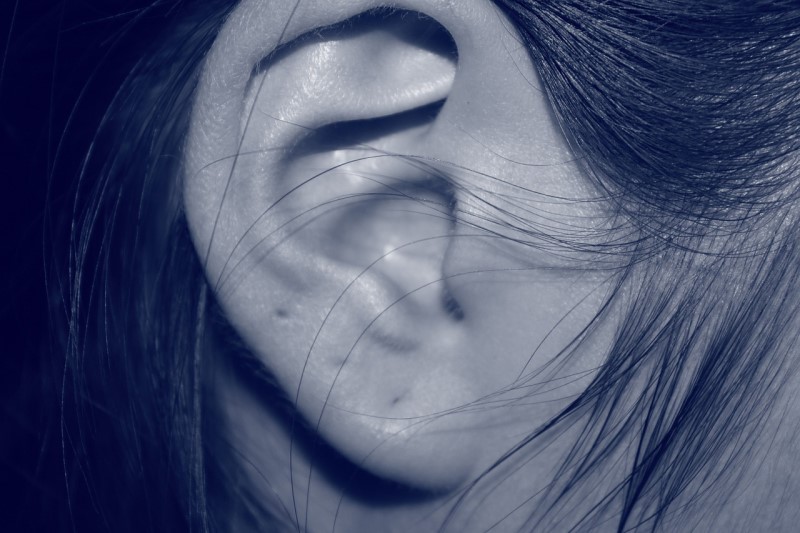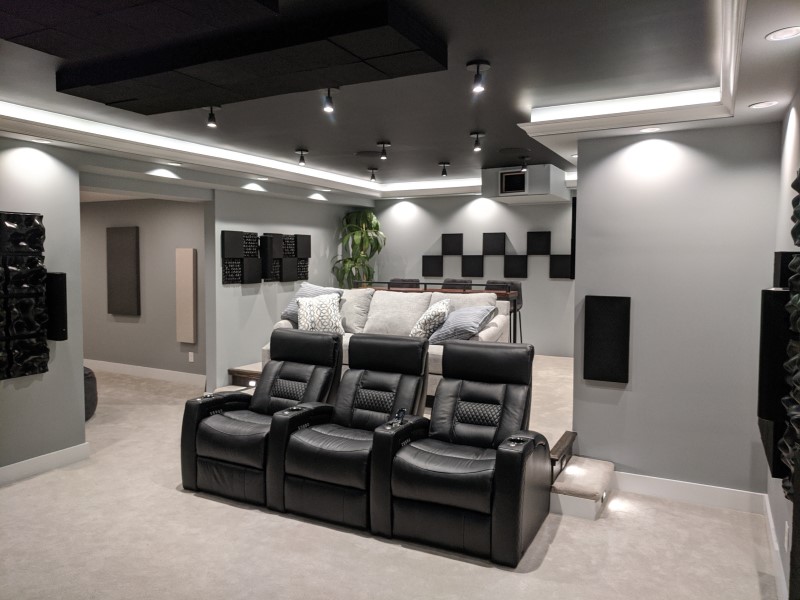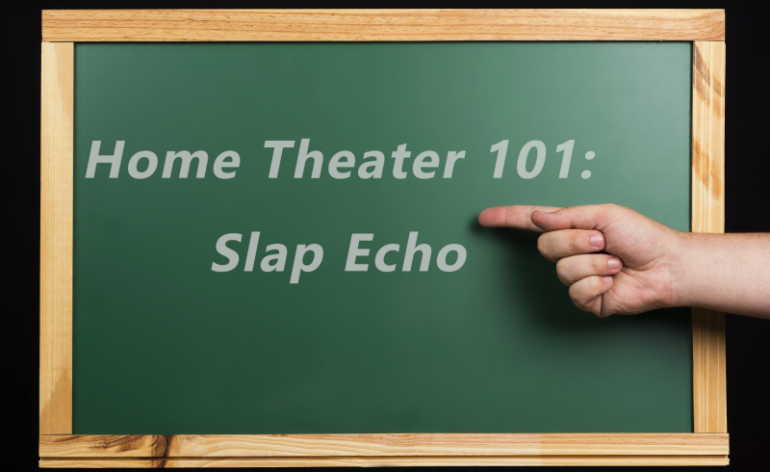Slap Echo: Home Theater 101
We spend a lot of time worrying about sound in our home theaters. We want things not only to look good but to sound good. As much like a movie theater as possible or even better. One term you might have run into is slap echo. This is often referred to when talking about dialogue intelligibility. Specifically when someone can’t understand what people are saying when they are watching a movie or TV. So, what is slap echo, how does it work, and what can we do to fix it.
What is Slap Echo and How Does it Work
A slap echo is a sound that reflects off a surface that is very near to your ear. If you think of echoes, you probably think of someone yelling into a cave. After some time, their voice comes back to them. Many times more than once. Each of these echoes is the result of the sound bouncing off a hard surface and returning to you. Much like how a mirror reflects light back into your eye.
A slap echo is one where the sound is reflected very quickly. In home theater, it often comes about because your seats are pushed up against a wall. The sound arrives at your ear, and then it arrives again when it reflects off the back wall. The difference in time between the two arrivals is small, but important when we consider how we hear.
Hearing and Smearing
Evolutionarily, hearing is directional. We needed to be able to identify the direction a sound was coming from so that we could judge the direction and distance if it was a threat. Our brains can do this by detecting the small differences in volume and phase (what time the sound reaches our two ears) giving us cues as to direction. Our brains also identify the loudest sounds as the “primary” even if there are echoes around. This allows us to have conversations in reverberant rooms (like empty auditoriums). It is also the reason why you can’t easily maintain a conversation if you are hearing an echo of your voice in a cell phone conversation. The auditorium echoes are softer and take longer to arrive at your ears so they aren’t distracting. The cell phone? Just as loud as your speaking voice and happen very quickly.

The slap echo that comes off your back wall when you place your seat against the back wall is loud. Nearly as loud as the primary sound. Also, it is just slightly delayed. This creates a problem for your brain. It is receiving two sounds of equal loudness that are arriving a slightly different times. So what does it do? It tries to pay attention to both.
As you can imagine, that doesn’t go well.
Your brain becomes confused by the two sounds and now you are complaining that you can’t understand what is being said on your television. You try turning it up, but it doesn’t help. Why? Because both the primary and the slap echo increase in equal amounts. So, how to fix this conundrum?
Pull Your Seats Away from the Wall
If possible, you’ll want to pull your seats away from the wall. This does a number of things. First, it increases the distance between your ears and the wall. The slap echo will still occur, but now the sound has to travel a greater distance. This both increases the time between the echo and the primary sound, but also decreases the volume of the echo.

By decreasing the volume, and increasing the distance, your brain will have an easier time identifying and paying attention to the primary sound. This will definitely help. But it might not be enough.
Add Absorption
If you can’t move your seats, or if you did and are still having issues, you’ll want to add some absorption. You can test out how much this could help by placing pillows or thick blankets behind your head as you are watching TV. If you notice that you can better understand what is being said, you know you need a more permanent solution.
We’ve talked a lot about adding absorptions panels to your home theater space. There are even panels that can be printed with original art on them. These panels, especially if they are at least 2″ thick, should do a great job of cutting down on any slap echo issues you have. And while you’re putting up a couple of panels, why not add a few more? They will reduce reflections in your home theater area and make everything sound better! Just don’t forget to re-run your room correction program on your receiver when you are done.


